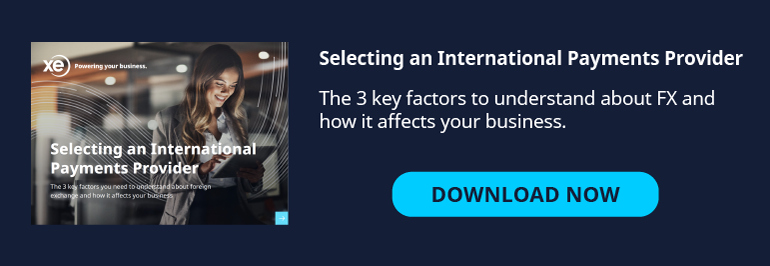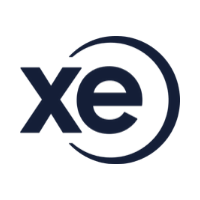| 24-1-2020 | Carlo de Meijer | treasuryXL
In my last Blog I suggested that regulation of the crypto markets would be one of the main issues for 2020 and beyond. There seem to be urgent need for more clarity on many cryptocurrency issues. The EU Fifth ALM Directive came into effect early January, while ESMA announced its plans to develop a legal framework for cryptocurrencies in 2020. In the US the Crypto Currency Act of 2020 is being discussed in the House of Representatives. My prediction that a growing number of regulators worldwide would more prominently enter the crypto stage this year will come true. Main question is: will this lead to more uniformity in the regulatory approach worldwide?

European Commission consultation on EU crypto framework
In December last year, the European Commission launched a public consultation on the future EU framework for markets in crypto-assets. It thereby seeks stakeholder views on, among others, the usefulness, means and features of future crypto-assets classification.
The Commission notes that the lack of any comprehensive classification of crypto-assets leads to uncertainty in the markets, as to whether (and potentially which) such assets fall within the scope of EU financial services legislation by means of being MiFID II financial instruments.
The Commission also seeks stakeholder views on the importance of specific benefits related to crypto-assets and also specific risks related to its use. The Commission notes that while crypto-assets can bring about significant economic benefits in terms of “efficiency improvements and enhanced system resilience”, they can also cause potential challenges for their users.
The consultation document includes detailed questions designed to assess legislation applying to security tokens and including, but not limited to, MiFID II, Market Abuse Regulation, Short Selling Regulation, Prospectus Regulation, Central Securities Depositories Regulation, EMIR and UCITS.
More broadly, the Commission seeks views whether a tailor-made EU regime for crypto-assets would “enable a sustainable crypto-asset ecosystem” and whether the use of crypto-assets in the EU would be “facilitated by the greater clarity as to the prudential treatment of financial institutions’ exposures to crypto-assets”. The current consultation remains open until 19 March 2020.
The consultation paper: Three main parts
This consultation paper consists of three main parts: (1) Classification of crypto-assets, (2) Crypto-assets that are not currently covered by EU legislation; and (3) Crypto-assets that are currently covered by EU legislation.
a. Classification of crypto-assets
The Commission acknowledges that while there is a wide variety of crypto-assets in the market, there is no commonly accepted way of classifying them in the EU. There is still a lack of a single and broadly accepted definition. For the purpose of this consultation, the Commission defines a crypto-asset as “a digital asset that may depend on cryptography and exists on a distributed ledger”.
b. Crypto-assets not covered by EU legislation
The consultation document includes specific questions focused on service providers related to crypto-assets, and in particular the issuance of crypto-assets, trading platforms, exchanges, provision of custodial wallet services for crypto-assets and other service providers.
The Commission notes that such activities and services providers remain – with some exceptions – outside the European (and national) legislative and regulatory framework and considers that “regulation may be necessary in order to provide clear conditions governing the provisions of these services.”
c. Crypto-assets covered by EU legislation
The Commission considers “security tokens” as crypto-assets “issued on a DLT and that qualify as transferable securities or other types of MiFID financial instruments”. For activities concerning such security tokens qualifying as MiFID II investment services/activities, authorisation is required.
In summarising trends concerning security tokens, the Commission admits “the limited evidence available at supervisory and regulatory level” and that “existing requirements in the trading and post-trade area would largely be able to accommodate activities related to security tokens via permissioned networks and centralised platforms”.
Fifth EU Anti Money Laundering Directive
The Fifth EU Anti Money Laundering Directive that took effect from 10 January 2020 puts a regulatory framework for all 28 EU members to date. Even the United Kingdom has decided to implement the law despite its decision to leave the EU.
The new Directive defines crypto-assets as “digital representation of a value that is not issued or guaranteed by a Central Bank or a public authority and that does not have the legal status of a currency or money, but that based on agreement or practice is accepted by natural or legal persons as means of payment or exchange or is used for investment purposes and that is transferred, stored and traded electronically”. This is to specifically exempt digitally stored and transferred fiat money, but include both payment and security tokens.
Among the most notable changes are that cryptocurrency service providers will have to follow Know-Your-Customer (KYC) rules. Cryptocurrency platforms and wallet providers are required to identify their customers for anti-money laundering purposes. All transactions will have to be monitored, and companies will need to file Suspicious Activity Reports (SARs) with law enforcement. The new KYC mechanism would require personal ID when opening an account on EU-operating exchanges. The proof-of-identity would serve as insurance, for not making any illicit financial operations.
The New Regulatory Framework is mandatory for all EU-based crypto exchanges and custodial wallets. Every crypto exchange operating on the European Union market must meet the legislation in order to continue its operation in the EU. They had to achieve compliance with the rules already by 10 January.
Worldwide exchanges must undergo an AML/KYC upgrade for the EU market, as until now, there were no rules about implementing such mechanisms. However, meeting those regulations would streamline the EU market to become competitive to other regulated markets, such as the United States.
Challenges
For firms buying and selling crypto assets, the Fifth Anti-Money Laundering Directive will require them to register with national financial regulators. The way exchanges and crypto-oriented companies must verify they are KYC-compliant, is via appropriate licensing in every jurisdiction. It also states minimum requirements for AML processes, similar to what we see with traditional asset classes.
Unless any company wishes to leave the EU, they should comply in full. Because the Directive requires crypto-related firms to register with their national regulators and comply with a variety of AML guidelines, it’s likely that some firms may struggle to adjust to the new regulatory environment. European crypto exchanges and companies are still far behind the “KYC-ready” state that the Directive requires.
While U.S.-based exchanges have the expertise to deploy AML/KYC protocol updates to comply with the EU Directive, crypto exchanges in the EU however have shown mixed readiness for KYC upgrades to their platforms. The majority of EU-operating exchanges have taken a so-called “procrastinating” approach. That could be very bad for those as, if the services do not comply with any of these requirements, they will have to pay fines and penalties, or even risk being shut down.
And while the Fifth Anti-Money Laundering Directive suggests a “harmonized regulatory framework,” there are significant differences in the ways the Directive is being implemented across the European Union.
ESMA aims to develop legal framework for cryptocurrencies in 2020
Early this month ESMA published its 2020-2022 priorities list, noting that EU capital markets are facing new risks from digitalisation. ESMA wants market participants to acknowledge and prepare for these apparent risks. In its Strategic Orientation, the regulatory agency also revealed its plan to bring a legal framework for digital currencies and related products.
“The dangers of cyber threats to the financial system as a whole and a sound legal framework for crypto-assets are increasingly becoming areas of focus for ESMA together with the other ESAs, the ESRB, the ECB and the European Commission.”
“The new Strategic Orientation sets out how we will exercise our new powers, and meet our new responsibilities, in pursuit of our mission of enhancing investor protection and promoting stable and orderly financial markets in the EU,” Steven Maijoor, chairperson of ESMA
The European agency had already been watching the digital asset industry for a while and has been grappling with the question of how to regulate cryptocurrencies and securities in the space. Last year it issued an advisory on initial coin offerings (ICOs) and crypto-assets, highlighting that some crypto-assets may qualify as MiFID financial instruments.
US Crypto Currency Act 2020-2022
But also in the US more crypto regulation is arriving, triggered by the possible launch of Facebook’ s Libra. The introduction of the Cryptocurrency Act of 2020 is seen as a vital move in regulating crypto markets. The goal of the new legislation is to provide additional clarification on digital asset regulations to the market and create a framework for cryptocurrencies, thereby countering the negatives of crypto investing.
The Act has now been introduced in the US House of Representatives. The bill has some wide-ranging regulations that, if voted into law, could reshape the crypto landscape moving forward – at least in the United States, but also elsewhere.
The objective of the Act is to enforce regulations and to force crypto companies to play by the same rules. The Cryptocurrency Act 2020 categorises digital assets into three main groups: crypto-commodities, cryptocurrencies, and crypto-securities. The draft bill thereby contains broad definitions of the types of digital assets. It further determines the various regulatory bodies that will oversee the crypto currency space and will be responsible for the creation of regulation and legislation. The Act thereby seeks to clarify the power of each government agency to regulate the crypto space.
Up till now multiple government agencies have been competing to regulate the crypto space, leading to a confusing mixture of laws. This is suppressing the crypto space, since crypto companies can be attacked by multiple federal agencies.
Additionally, rules will be established with the goal of tracing all crypto and digital currency transactions, in addition to the personal facilitating the transacting, similar to other traditional currency transactions, securities fraud, corporate auditing and other financial activities.
Digital assets: Three main groups
The most interesting change is how digital assets are to be split up into three main categories. A distinction is made between cryptocurrencies, crypto-securities, and crypto-commodities.
a. Cryptocurrencies
The draft bill puts cryptocurrencies in a separate category of digital assets. They are defined as “representations of US currency” synthetic derivatives backed by smart contracts or collateralized by other digital assets (resting on a blockchain or decentralized cryptographic ledger).
The crypto class includes Bitcoin, Bitcoin Cash, Litecoin, and any other cryptocurrencies that don’t fall under the current securities regulations. Smart contracts and oracles fall under the cryptocurrency category as well. Furthermore, the role of stablecoins will be scrutinized, as not all of these currencies are created equal.
The Financial Crimes Enforcement Network (FinCEN) is to overlook cryptocurrency regulations, on behalf of the Treasury secretary. FinCEN will thereby need to collaborate with the Secretary of the Treasury to enforce AML and KYC protocols in the market. Primarily, regulators want to develop a way to trace all cryptocurrency transactions, which seems highly questionable.
b. Crypto-commodities
The bill defines crypto-commodities as all digital assets, regardless of who produced them, stored on a “blockchain or decentralized cryptographic ledger”. A key aspect of these tokens is the fact that they contain some form of substantial fungibility. Fungible assets are interchangeable, such as the USD.
The Commodity Futures Trading Commission (CFTC) is to be responsible for regulating crypto-commodities. The group will need to develop the framework for these tokens from the ground up if the legislation passes. Due to the rise of cryptocurrencies, it is expected crypto-commodities will play a major role in the space going forward.
c. Crypto-securities
Crypto-securities, the most comprehensive of the three types of digital assets, “include all debt, equity, and derivative instruments that rest on a blockchain or decentralized cryptographic ledger.” These tokens are simply any coin that “fails the Howey Test”. What the Howey test defines is whether or not an asset will be categorised as a security by financial regulators.
The draft bill’s exceptions to crypto-securities are as follows: “A synthetic derivative operating as a money services business and registered with the Department of the Treasury; and, or Any security that operates in compliance with the Bank Secrecy Act “and all other Federal anti-money laundering, anti-terrorism, and screening requirements of the Office of Foreign Assets Control and the Financial Crimes Enforcement Network.”
In the Cryptocurrency Act 2020 security tokens are to be overlooked by the Securities and Exchange Commission (SEC).
Growing need for crypto compliance professionals
The fast evolvement of crypto regulation worldwide as well as the – sometimes very – different approaches ask for a large number of regulatory and compliance professionals. There is still a great lack of knowledge of future crypto compliance and governance, so finding, recruiting and hiring these people may become a big challenge especially for smaller firms. Bigger companies generally will likely have the necessary procedures and processes already in place needed for crypto from working with other asset classes.
The news of “pending” clarity of new government regulation is mobilising a growing number of professionals (crypto accountants, tax professionals and compliance officers) to study the various compliance issues that are arising from these mostly different crypto regulations. They are working together to use any available information to accurately meeting the new reporting and compliance requirements for 2020 and beyond.
Towards a global regulatory framework?
The year 2020 should be seen as the start of a regulatory revolution for cryptocurrencies. Regulatory initiatives in both the EU and the US could trigger new cryptocurrency regulations around the world, to attribute regulatory clarity to the global crypto market.
A global regulatory framework for cryptocurrencies however will not be easy to implement. Bringing a complex and fast evolving area like cryptocurrencies into a global framework is going to be a difficult and lengthy process.
In countries all over the world, governments have been struggling to develop laws and guidelines regulating the use of cryptocurrencies currencies. This has resulted in a patchwork of different regulations.
But while the approaches of other governments may initially remain quite different, most experts however believe that, triggered by the regulatory approaches in the EU and the US such a global framework will be a reality at the end of this decade

Carlo de Meijer
Economist and researcher



















